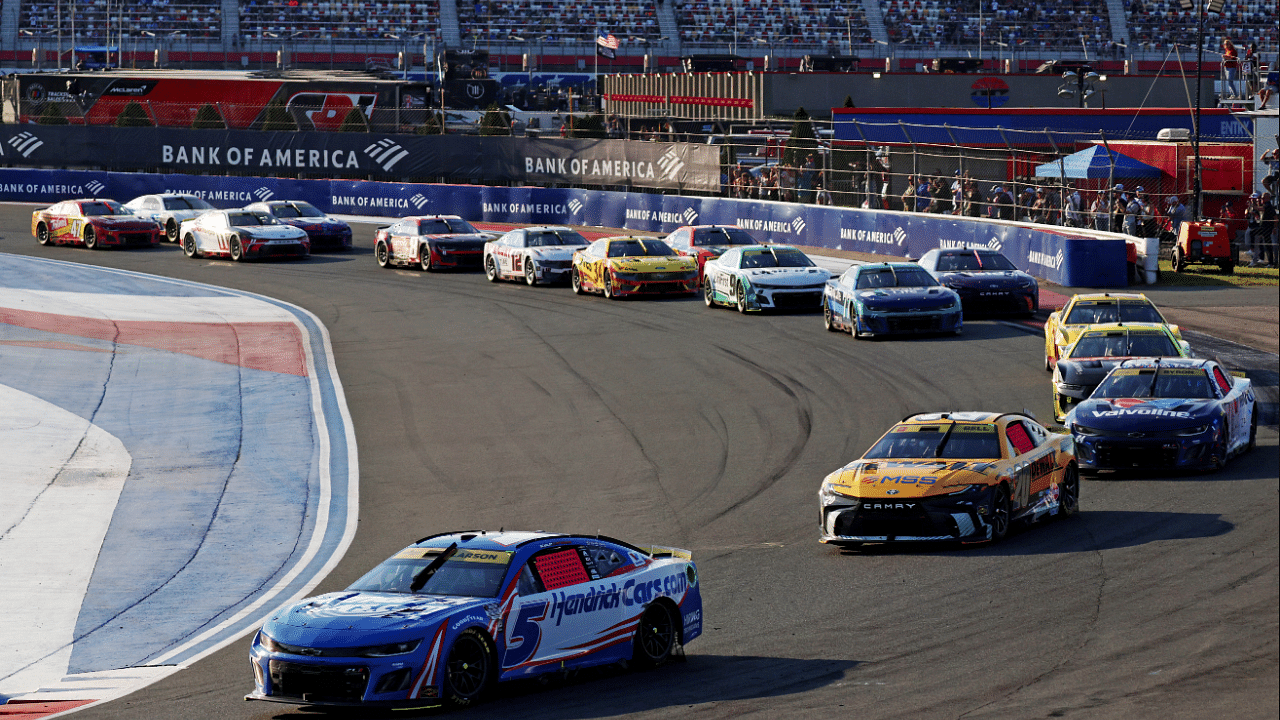NASCAR’s decision to include the Charlotte Roval in its playoff schedule has faced scrutiny, but driver Denny Hamlin has offered insights into the rationale behind this choice. During a recent episode of his podcast, Hamlin emphasized the importance of having varied track types in the playoffs, which include short tracks, mile-and-a-half tracks, superspeedways, and road courses.
The upcoming playoff race at Talladega, scheduled for October 1, 2023, represents one of the most unpredictable events in the series. Hamlin highlighted the significance of the Roval, which hosted its playoff event on September 24, 2023, as a unique challenge for drivers. “Let me give you the facts,” he stated, noting that the Roval’s date is owned by Speedway Motorsports Inc. (SMI). “It is a playoff race, and NASCAR wants a road course to be in the playoffs.”
Hamlin acknowledged that SMI is somewhat limited in its options for the Charlotte date. Although SMI also owns Sonoma Raceway in California, typically hosting a race in mid-to-late June, shifting that event to replace the Roval is unlikely. As Hamlin pointed out, “I don’t know that SMI has a choice but to run the Roval.”
The challenges posed by the Next Generation car on road courses have been significant. Hamlin remarked that passing has become increasingly difficult, particularly on single-lane tracks. He explained, “You have to have multi-lanes to move around,” referencing the Roval’s design. In contrast, the Charlotte oval, often likened to a smaller version of Kansas Speedway, offers more opportunities for overtaking.
Historically, the NASCAR playoffs have not consistently featured road courses at the season’s conclusion. Hamlin reflected on this trend, stating, “Typically for the bulk of my career, we ran two road courses a year. None of them were at the end of the season.” He acknowledged the logic behind including a road course, arguing that it tests drivers’ skills across various types of tracks.
Looking ahead, there are questions regarding the future of the Roval in subsequent seasons. Although it is currently on the NASCAR schedule for 2026, Hamlin suggested that changes could occur. “Someone has to give,” he said, posing a challenge to NASCAR on whether a road course is necessary in the final ten races of the playoffs.
He proposed that if NASCAR and SMI wish to see increased fan engagement, they might consider reverting to the oval layout for the October race. “I believe that if SMI and/or NASCAR wants an instant bump in ratings and in ticket sales in 2026, they announce we’re going to be in Charlotte in October, but we’re going to be racing left turns,” Hamlin declared. This statement reflects a sentiment shared by many fans who prefer traditional oval racing.
As NASCAR continues to navigate its playoff structure, the debate surrounding the inclusion of road courses like the Charlotte Roval will likely persist. The series aims to balance tradition with the evolving dynamics of competitive racing, and how it addresses these concerns will shape the future of the sport.
